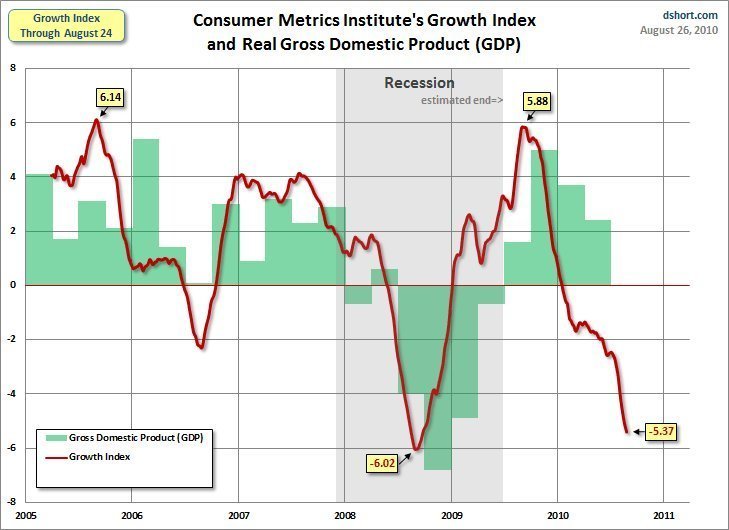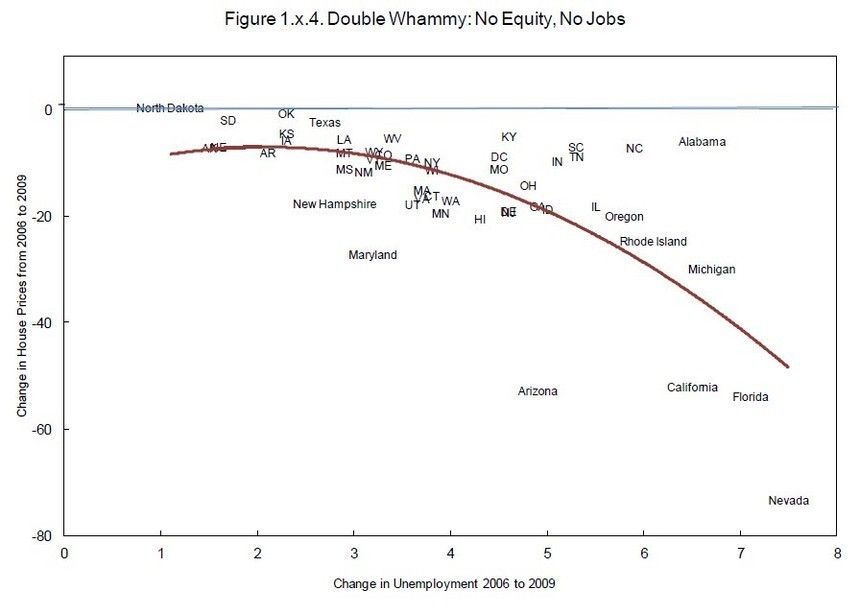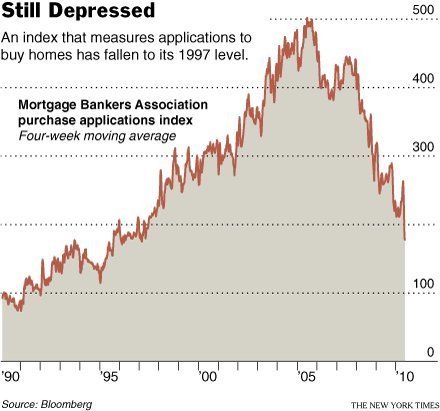
GEAB N°47 is available! The Global systemic crisis â Spring 2011: Welcome to the United States of Austerity / Towards a very serious breakdown of the world economic and financial system
- Public announcement GEAB N°47

In this issue we have chosen to present an extract of the anticipation concerning the forthcoming austerity which will be imposed on the United States beginning Spring 2011: « Welcome to the United States of Austerity ».

Broad-based anger will cripple Washington from November 2010
For example, we are already seeing a very specific expression of this widespread anger against Wall Street in that Americans have deserted the stock market (18). Each month, an increasing number of « small investors » leave Wall Street and the financial markets (19), today leaving more than 70% of transactions in the hands of major institutions and other « high frequency traders ». If one keeps in mind the traditional image that the stock exchange is today’s temple of modern capitalism, then we are witnessing a phenomenon of loss of faith comparable to people’s disaffection with official demonstrations experienced by the communist system before its fall.
The Federal Reserve now knows that it is powerless
Accustomed to the virtualism and thus to the possibility of manipulating the processes and dynamics of events, US central bankers believed that they could « mislead » households, once again giving them the illusion of wealth and thus pushing them to revive consumption and behind it the whole United States’ economic and financial machine. Until summer 2010, they did not believe in the systemic nature of the crisis or they did not understand that what was causing the problems was out of reach of the tools of a central bank, as powerful as it may be. Only in recent weeks have they discovered two pieces of evidence: their policies have failed and they have neither arms nor ammunition.
Hence the very depressed tone of the discussions at the central banks meeting in Jackson Hole, whence the lack of consensus on future action, whence the endless debates about the nature of the risks to be faced in the coming months (e.g. inflation or deflation, knowing that the system’s internal tools used to measure the economic consequences of these trends are no longer even relevant, as we analyse in this issue (22)), whence increasingly violent clashes between proponents of renewed growth via debt and followers of deficit reduction... and whence Ben Bernanke’s speech full of veiled threats to his central banker colleagues: in ambiguous terms, he passed the following message: « We will try everything and anything to avoid an economic and financial collapse and you will continue to finance this « everything and anything », otherwise we let inflation loose and thus devalue the Dollar whilst US Treasury Bonds will no longer be worth much » (23). When a central banker expresses himself like a common cash extortionist, there is danger in the house (24).
The response of the world’s major central banks will be unveiled in the next two quarters. Already the ECB has made it clear it thought that a new policy of stimulation through an increase in US deficits would be suicidal for the United States. Already China, whilst saying it would do nothing to rush things, spends its time selling US assets to buy Japanese ones (reflected in the historic level of the Yen / Dollar rate of exchange). As regards Japan, it is now forced to align itself simultaneously with Washington and Beijing ... which will probably cancel out all its financial and monetary policies. In future quarters the Fed, like the federal government, will find that when the United States is no longer synonymous with juicy profits and / or shared power, its ability to convince its partners declines quickly and heavily, especially when the latter question the relevance of the chosen policies (25).

This is normally a good reason for the rating agencies, always so quick to see the straw in the eye of most countries in the world, to threaten the United States with a strong downside rerating if they not implement a comprehensive austerity plan as quickly as possible. But anyway, for LEAP/E2020, due to the internal and external conditions in the country described above, it is really in spring 2011 that the United States has an appointment with austerity, an appointment that the rest of the world will impose if it is paralyzed politically.
Until then, it is likely that the Fed will try a new series of « unconventional » measures ( a technical term meaning « desperate attempts ») to try and prevent arriving there because, at this stage, one thing is certain concerning the consequences of the United States entering a large-scale programme of austerity: that will be financial and monetary chaos in the markets accustomed for decades to the exact opposite, that’s to say, US waste; and an internal economic and social shock unparalleled since the 1930s (27).
Notes:
(1) In this regard, in the next GEAB issue in October, our team will prepare, as it does each year, its country risk and economic outlook list for 2011. What is already clear to our researchers is that the end of 2010 will be marked by a sharp downward revision of all current forecasts (including already reduced forecasts for the United States). Source: Reuters, 09/09/2010
(2) Sources: Bloomberg, 07/20/2010; Oftwominds, 07/15/2010; New York Times, 08/09/2010; CNBC, 08/12/2010
(3) The chart below illustrates how growth is already collapsing. The CMI growth index has been one of the most reliable leading indicators in forecasting the changes in US GDP. And 92% of Americans believe the country is still in recession. Source: GlobalEconomicAnalysisBlogspot, 09/09/2010
(4) As outlined by our team from the GEAB No. 9 of November 2006 onwards.
(5) To borrow the evocative title of Joseph Conrad excellent novel which especially inspired Francis Ford Coppola for his film Apocalypse Now.
(6) As LEAP/E2020 called the American economic crisis from April 2007 in the GEAB No. 14.
(7) Moreover, without even incorporating this anticipation in their analysis, even the OECD experts warn that global growth will suffer a setback between now and the end of 2010. Source: Marketwatch, 09/09/2010
(8) The Wells Fargo / Gallup index of US SMEs continues to fall month after month. Source: Gallup, 08/02/2010
(9) Even Wall Street continues to plan mass layoffs in the coming months. Source: Bloomberg, 09/07/2010
(10) Even high earners are now affected by the problem of foreclosures. Source: USAToday, 07/29/2010
(11) To clarify this alarming social situation, it is worth reading the joint IMF / ILO report initiated by the Norwegian Government on « The challenges of growth, employment and social cohesion » in the context of the current crisis. Source: OsloConference, 07/22/2010
(12) A very telling indicator showing the price that young Americans are paying because of the crisis.The number of summer jobs, a traditional feature of independence for young Americans for the following year, fell to its lowest level since 1948. Source: USAToday, 09/03/2010
(13) These images of drastic cuts in police numbers in Auckland are emblematic of what is happening countrywide in terms of public services. Source: DailyMotion
(14) On this topic USAToday of 08/16/2010 had a very interesting portrait gallery of the « Tea Party » movement's supporters.
(15) See GEAB issue N°45
(16) The success of the « tea-partisan » gathering in Washington on 08/28/2010, organized by Glenn Beck, is an obvious example. Source: Washington Post, 08/29/2010
(17) Source: New York Times, 08/31/2010
(18) Stock exchanges have stalled or been declining for several quarters despite continuous attempts by the financial authorities to try to restore their shine ... and once again are approaching a violent spasm tied to « the Hindenburg Omen » or the anticipation of global economic and financial conditions. Source: Telegraph, 08/27/2010.
(19) Source: New York Times, 08/22/2010
(20) Even when they manage to find a job, it’s usually a job much less well paid than the previous one. Source: CNBC, 09/01/2010
(21) Thus the foreclosure process is a reflection of an alarming phenomenon of a decline in the value of US households’ assets. Source: Foxnews, 08/23/2010
(22) If the prospect of deflation is that which officially « spoiled the mood » of the central bankers’ meeting in Jackson Hole in late August 2010, it is actually growing doubts about the Fed's ability to select and implement appropriate measures to revive the US economy which makes the whole of the small world of central bankers so nervous. Sources: CNNMoney, 08/31/2010; FT, 09/10/2010
(23) It should be noted here that in front of the growing reluctance of the rest of the world to buy US Treasury Bonds and GSE, the Fed has not only officially begun to buy them for its own account (or more unobtrusively via its « primary dealers ») but it has begun to organize the massive sale of federal debt to US individuals operators. In effect it must seem easier to manage the plundering of many dozens of million people more or less unaware of the economic and financial nuances than that of the major strategic players such as China, Japan, the Gulf oil countries,.... (see chart in GEAB N°47):
(24) After explaining that the use of a moderately inflationary policy had been discussed but wasn’t on the agenda, Ben Bernanke said that however, if deflation risks grew, then the usefulness of some intervention methods could be reconsidered. Clearly, if nothing else works and if the other global players do not want to feed the US deficit machine, then debt monetization will be implemented on a large scale. At least, things are now clear. When LEAP/E2020 warned that it was the only option for the United States in the looming crisis it seemed outrageous. Today, it is the Fed Chairman himself who sets the tone. Source: US Federal Reserve, 08/27/2010
(25) The failure of the mammoth measures to support the housing market is well illustrated by the chart below.
(26) We are even beginning to hear voices suggesting « copy Europe » like Jim Rogers and Doug Noland who publishes the excellent « Credit Bubble Bulletin ». Sources: CNBC, 08/31/2010; Prudent Bear, 07/30/2010
(27) As the historian Niall Ferguson points out in this article published on 07/29/2010 by The Australian, « the sun can suddenly set on a superpower when debt bites ». An historical reminder that columnist Thomas Friedman, though very patriotic, doesn’t refute, who emphasized that the sharp decline of American power was due to the economic crisis in the New York Times on 09/04/2010.
Sept. 16, 2010
